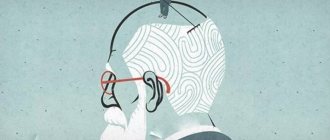- Tweet
- Share 0
- VKontakte
- 1
- Login to have your vote counted
The authors of utopias of the 19th century repeatedly expressed the idea that a person, having saturated his life as much as possible with technical innovations, would finally free up time for pleasant activities and communication. But the reality turned out to be far from so rosy: today, technological progress has reached a level that science fiction writers could not even dream of in the past, and people have not become freer.
On the contrary, it seems that the work of a person striving for success now takes up his entire life. There is simply no time and energy left for anything else.
However, blaming technological progress and the modern rhythm of life for a lack of time is stupid. If you analyze the situation, it turns out that the issue is not a huge amount of urgent tasks, but an inability to organize and structure your time.
Success: what are we aiming for?
The concept of success in modern society often becomes synonymous with financial stability. Indeed, it is difficult to consider yourself a successful person if you barely have enough money for only the essentials.
However, many people forget that having capital in itself has not made anyone happy. After reaching a certain level of income, money ceases to play the role of a synonym for happiness. At the same time, wealthy people often do not feel happier and more satisfied with life than they were before their income reached such heights.
Success in fact is not just a desired social status, a place on the career ladder and a certain level of income. The degree of success depends on how much a person’s ideas about an ideally organized life correspond to the realities of his existence. If you spend every day doing something you don’t love, performing tasks whose significance is expressed only in material returns, you will not feel satisfied with your own activities.
However, few people now pay attention to this “internal” component of success. It seems that the more financially secure and comfortable a person’s life becomes, the happier he will be. This is the philosophy of a society aimed at consumption and acquisition. This means that the main thing for a happy life is the ability to achieve a certain level of material wealth. Money and social status are transformed from a means to achieving goals into an end in itself.
Trend
Statistics show that the pace of life has increased by at least 10% over the past 10 years. How was this tracked? Professor of psychology at the University of Hertfordshire (UK) Richard Wiseman studied the speed of people on the street. For his research, he visited 32 cities around the world, where he measured the speed of movement of residents. He then conducted a comparative analysis of the data obtained and a similar study conducted ten years earlier by Professor Robert Levine from California State University (USA). It turned out that the pace of life in cities is growing by at least 1% per year.
Top 10 most rushed cities in the world
as follows:
- 1. Singapore
- 2. Copenhagen
- 3. Madrid
- 4. Guangzhou
- 5. Dublin
- 6. Curitiba
- 7. Berlin
- 8. New York
- 9. Utrecht
- 10. Vienna
How do people become workaholics?
So, financial stability and career advancement turn out to be extremely important for a person. How to achieve this? A person logically assumes:
- In order to earn a lot, you need to work a lot.
- More effort - better results.
- To achieve super results, you need to devote almost all your time to work.
And here we have a workaholic - a person who lives solely to work.
In the modern business world, being a workaholic is considered almost an honor: indeed, a person devotes himself entirely to work, is ready to work on weekends, holidays and at night, solves business issues around the clock... Perhaps he will achieve success faster than others? Hardly. Most likely, he will simply “burn out” and develop a nervous breakdown and several physical ailments in addition.
In fact, the secret of truly successful people is not that they work hard. They just work efficiently. It doesn't matter how much time you spend on a problem, what matters is that the problem gets solved. The ability to properly organize the process allows you to work less, but much more efficiently.
Watch your breath
There are situations when there are too many irritants nearby: someone’s phone vibrates, endless notifications come in instant messengers, and colleagues confuse your thoughts with their conversations.
The tension rises, and you realize that you are about to break. In such a situation, you need to turn your attention to breathing.
The effectiveness of this way to calm down has been scientifically proven. Biochemists from Stanford University have proven The Effect of Diaphragmatic Breathing on Attention, Negative Affect and Stress in Healthy Adults that there is a relationship between the depth of breathing and emotions: the faster and shallower a person breathes, the higher the degree of anxiety and tension. Deep and slow breathing relaxes and relieves tension.
How to improve your work efficiency
Goals
Any action must begin with understanding the result: what exactly you want to achieve. In other words, you need to set a goal correctly. Next, the goal is broken down into tasks - specific steps towards its implementation.
The goal must be written down. Psychologists say that only a written form of stating a goal will help to clearly formulate it. To write down, you can use a notepad, a diary the old-fashioned way, or, in the end, just write yourself a note on a sticky note and place it in a visible place.
However, in the era of general “internetization”, a reasonable solution would be to use convenient services specially created to facilitate the task of goal setting. For example, the SmartProgress will help you do this clearly, quickly and effectively.
SmartProgress service will help you correctly formulate your goal, break it down into stages and determine the time frame for completing each of them. You will be able to record all your achievements, observations and ideas that arise as you complete tasks in a diary.
If you wish, you can make your entries available to other users of the resource. This will give you the opportunity to find like-minded people, share your thoughts with them, consult with them, comment on their comments and observations, etc. Such a system allows you to analyze your work at any stage, easily find weaknesses in your strategy for achieving the goal and make the necessary adjustments.
Time management
Many people have heard about the system of rational distribution of working time. But how effective is it?
Most people don’t think about how many minutes and even hours they spend on useless things, which not only distract from truly important and necessary activities, but also tire them out, creating the impression of maximum workload.
By setting yourself the goal of tracking where you spend time during the day, you will no longer talk about the lack of time. You will clearly see how it flows into “preparing for work,” empty conversations with colleagues, “fluttering” around websites without a specific goal, etc.
Time management will help you learn how to rationally distribute and use the time allotted for work. There are so many books, articles and studies written on this subject that you can easily find the information you need.
However, you should not get carried away with studying theory. Don’t forget that time management is just a convenient and effective tool for solving work problems, and your goal is not to thoroughly study the “material parts”, but to learn how to apply this technique in practice in order to do more things in a shorter period of time.
Rest
And finally, the last thing that workaholics remember and almost the most important for effective work. To work well, you need to rest well. And the best rest is sleep.
Forget about working at night, don’t try to be like Leonardo da Vinci, who supposedly slept 4 hours a day (in fact, this is not true). By constantly cutting back on the number of hours you spend at night, you will not solve your own problems, but will only aggravate them, acquiring a lot of troubles in addition:
- Creative ideas will disappear. As you know, during the waking period, the brain receives information from many sources, and during sleep, in a calmer, “closed” mode, processes it as efficiently as possible and often produces a solution that you could not see in the process of painstaking work. By depriving yourself of sleep, you are depriving your brain of its ability to be creative.
- The taste for life will disappear. Feeling constantly tired and overwhelmed will force you to put off solving truly important issues until later, and instead do something insignificant.
- Aggression will appear. It is difficult for a tired and sleep-deprived person to maintain peace of mind in stressful situations - the nervous system is already overloaded. The ability to control outbursts of aggression decreases, and they occur more often. Think about your loved ones!
- Flexibility of thinking disappears. A tired person will prefer to work in an already chosen direction and use proven methods instead of looking for new ways to solve the issue. Even if he sees that he has reached a dead end, he most likely will not give up his attempts. There is no longer any strength to search for a way out, but by adhering to the chosen direction, you can still create the illusion of moving forward.
Don’t deprive yourself of the opportunity to restore strength and put your thoughts and emotions in order - choose good sleep.
Include fun things in your schedule
Sometimes there is no time in life for anything other than work. We put aside our favorite activities and hobbies for a while in order to finish a project, submit quarterly reports, or simply look like a superhero in the eyes of others. But this is a trap: by giving up enjoyable activities that energize us, we drive ourselves into a funnel of exhaustion.
The funnel of exhaustion is a situation when there is nothing left in life except work and daily routine.
We constantly give away energy without replenishing it, and at some point we reach rock bottom: we feel apathy, hopelessness and indifference to everything.
To get out of the funnel, schedule time for relaxation and favorite activities. For example, on Wednesday, Saturday and Sunday you set aside an hour for sports, on Friday you meet with friends after work. This is not a waste of time, but something that fills you with energy and restores mental balance.
Summary
From everything said above, we can draw a fairly simple conclusion: there is nothing impossible in getting the maximum result without giving all your best physically and mentally. To do this, you only need three things:
- Smart planning;
- The ability to rationally distribute your working time;
- Adequate sleep and rest.
Don't deny yourself these three things - and you can not only make your work more effective, but also learn to enjoy the calm process of doing it.
Yes, developing these useful skills and habits will also take time. But aren't you ready to invest a few minutes a day in the most important thing you have - in yourself?
- Tweet
- Share 0
- VKontakte
- 1
- Login to have your vote counted
Be in nature
Nature has a therapeutic effect on us: fresh air helps cope with stress and fatigue, physical activity energizes Influence of Acute High-Intensity Aerobic Interval Exercise Bout on Selective Attention and Short-Term Memory Tasks with energy, and natural sounds reduce It's true: The sound of nature helps us relax tension level. To relax, you don’t have to go out of town - a city park or a shady square with a fountain will do.
If your day at work starts off stressful, go to the park during your lunch break. Regular walking will replace physical exercise and redirect your attention from work problems to relaxing objects around you.
Where do biorhythms come from?
This question is consonant with the question of how our world came into being. The answer may be this: nature itself created biorhythms. Think about it: all natural processes in it, regardless of their scale, are cyclical. Periodically, some stars are born and others die, activity on the Sun increases and decreases, year after year one season gives way to another, morning is followed by day, then evening, night, and then morning again. These are the rhythms of life known to all of us, in proportion to which life on Earth exists, and the Earth itself too. Subject to the biorhythms created by nature, people, animals, birds, plants, amoebas and slipper ciliates live, even the cells from which we all consist. The very interesting science of biorhythmology is engaged in the study of the conditions for the occurrence, nature and significance of biorhythms for all living beings on the planet. It is a separate branch of another science - chronobiology, which studies not only rhythmic processes in living organisms, but also their connection with the rhythms of the Sun, Moon, and other planets.
Another classification
The German doctor and physiologist J. Aschoff proposed separating the rhythms of life, focusing on the following criteria:
— time characteristics, for example periods;
— biological structures (in living organisms this is a population);
- rhythm functions, such as ovulation;
- a type of process that generates a specific rhythm.
Following this classification, biorhythms are distinguished:
— infradian (last more than a day, for example, hibernation of some animals, the menstrual cycle);
- lunar (phases of the moon that greatly influence all living things, for example, during the new moon the number of heart attacks, crimes, car accidents increases);
- ultradian (last less than a day, for example, concentration, drowsiness);
- circadian (lasting about a day). As it turned out, the period of circadian rhythms is not related to external conditions and is genetically determined in living organisms, that is, it is innate. Circadian rhythms include the daily content of plasma, glucose or potassium in the blood of living beings, the activity of growth hormones, the functions of hundreds of substances in tissues (in humans and animals - in urine, saliva, sweat, in plants - in leaves, stems, flowers) . It is on the basis of circadian rhythms that herbalists advise harvesting this or that plant at strictly certain hours. In us humans, more than 500 processes with circadian dynamics have been identified.
Physiological biorhythms
There are so many rhythms of life that they decided to systematize them, dividing them into two main categories - physiological rhythms of life of organisms and environmental ones. Physiological ones include cyclic reactions in the cells that make up organs, the beating of the heart (pulse), and the breathing process. The duration of physiological biorhythms is very short, up to only a few minutes, and there are also those that last only a fraction of a second. For each individual they are their own, regardless of membership in the population or family ties. That is, even for twins they can be different. A characteristic feature of physiological biorhythms is their high dependence on a number of factors. Phenomena in the environment, the emotional and psychological state of an individual, diseases, any little thing can cause a disruption in one or several physiological biorhythms.
Pseudotheories about biorhythm
Soothsayers and oracles have long been interested in such an important phenomenon as biorhythms. By creating their theories and systems, they try to connect the life of each person and his future with numerology, the movement of planets, and various signs. At the end of the last century, the theory of “three rhythms” rose to the peak of popularity. For every person, the trigger mechanism is supposedly the moment of birth. At the same time, physiological, emotional and intellectual rhythms of life arise, which have their peaks of activity and decline. Their periods were 23, 28 and 33 days, respectively. Proponents of the theory drew three sinusoids of these rhythms, superimposed on one coordinate grid. At the same time, days on which the intersection of two or three sinusoids fell, the so-called zero zones, were considered very unfavorable. Experimental studies have completely refuted this theory, proving that people have very different periods of their activity biorhythms.
We and modernity
Our great-great-grandfathers lived a more measured life. The sunrise and sunset served as a clock, and seasonal natural processes served as a calendar. The modern rhythm of life dictates completely different conditions for us, regardless of our chronotype. Technological progress, as we know, does not stand still, constantly changes many processes to which our body barely has time to adapt. Hundreds of drugs are also being created that significantly affect the biorhythms of living organisms, for example, the timing of fruit ripening and the number of individuals in populations. Moreover, we are trying to correct the biorhythms of the Earth itself and even other planets, conducting experiments with magnetic fields, changing the climate as we please. This leads to chaos in our biorhythms that have been formed over the years. Science is still looking for answers to how all this will affect the future of humanity.
Chronomedicine
This is the name of a new field in medicine that pays close attention to circadian biorhythms. There are already dozens of discoveries in chronomedicine. It has been established that many human pathological conditions follow a strictly defined rhythm. For example, strokes and heart attacks most often occur in the morning, from 7 a.m. to 9 a.m., and from 9 p.m. to 12 a.m. their occurrence is minimal, the pain is more intense from 3 a.m. to 8 a.m., hepatic colic more actively causes suffering at about one a.m., and hypertension The crisis becomes more pronounced around midnight.
Based on discoveries in chronomedicine, chronotherapy emerged, which deals with the development of drug regimens during periods of their maximum impact on the diseased organ. For example, the duration of action of antihistamines taken in the morning lasts almost 17 hours, and those taken in the evening last only 9 hours. It is logical that diagnoses are made in a new way using chronodiagnostics.










